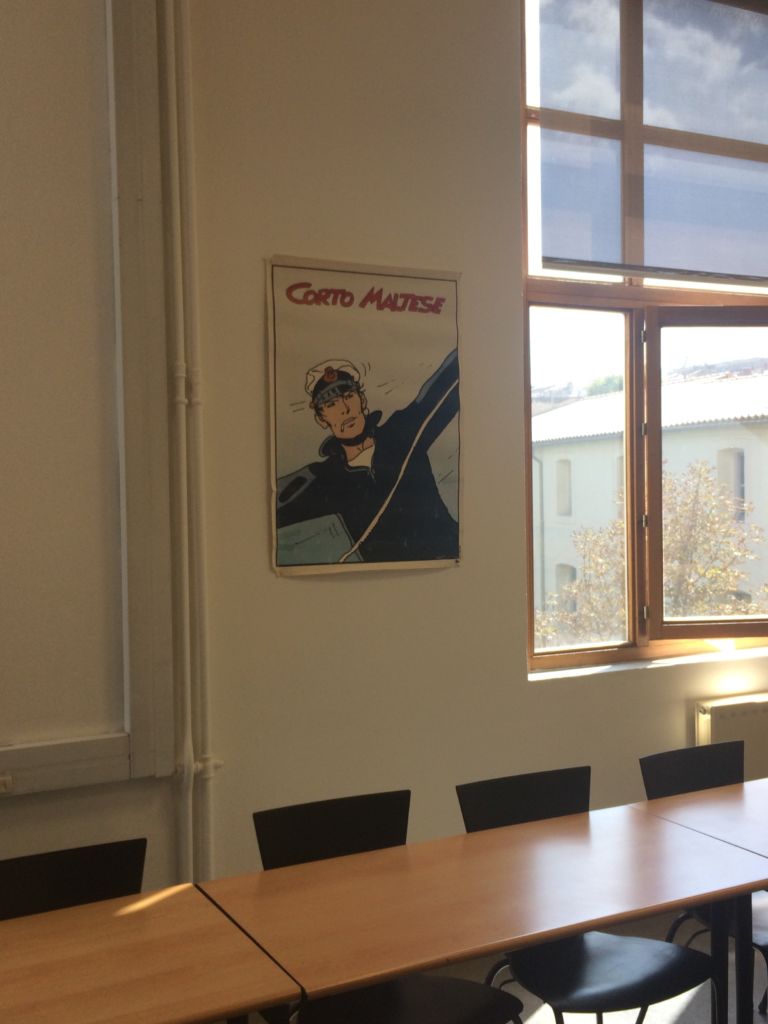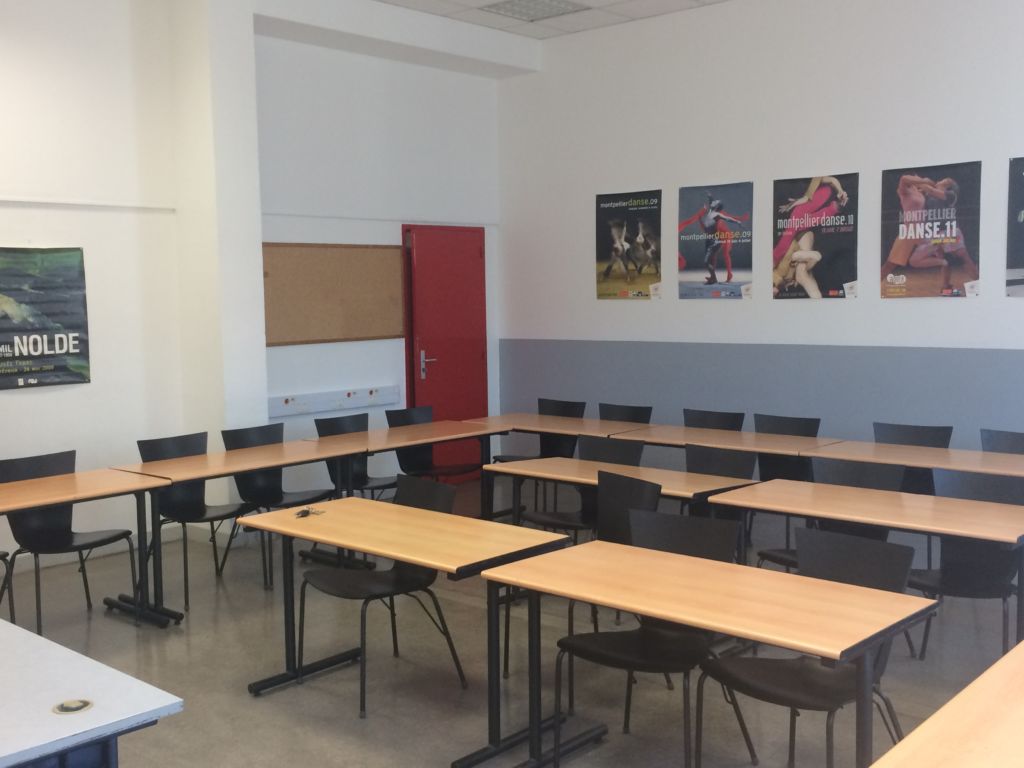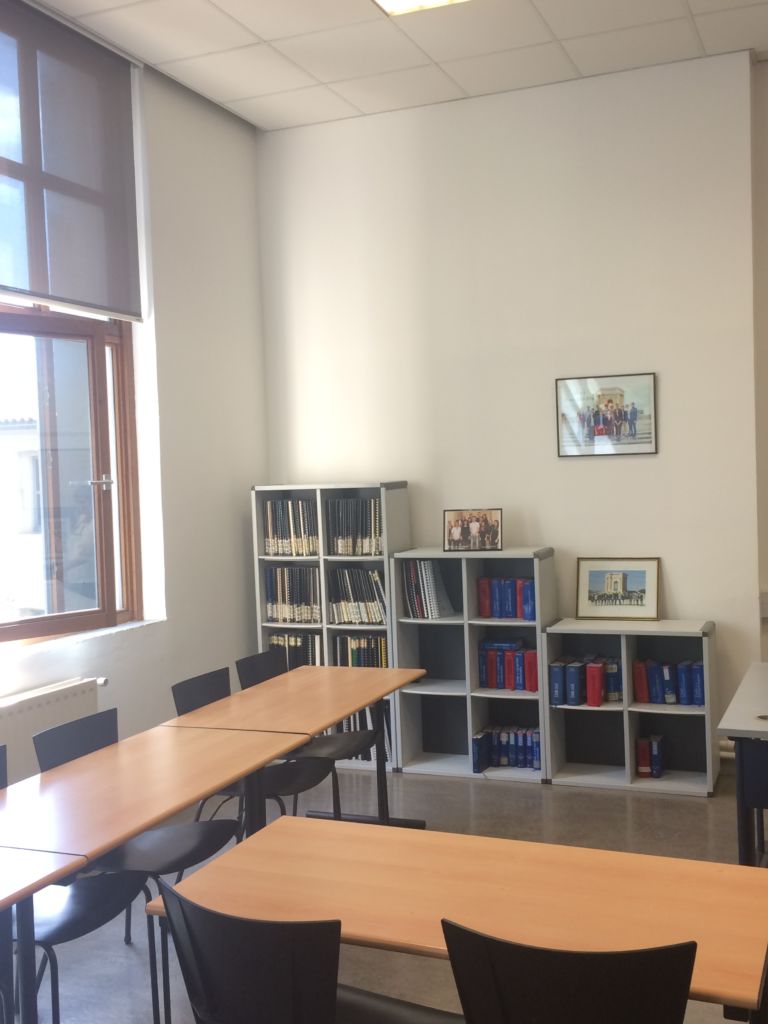The master
History of the Master
The diploma is now 30 years old. It was created in 1989 by Professor M. Vivant and taken over in 2009 by Mrs. A. Robin.
- 1989-2004: Post-graduate degree (DEA) in "Intellectual Property Law
- 2004-2015: Research and Professional Master 2 in Corporate Law, specializing in "Intellectual Property Law".
- 2011-2015: Master 2 in Corporate Law, Intangible Creations specialization
- 2015-2020: Master 2 in Business Law, Intellectual Property and ICT Law specialization
- 2021-...: Master of Intellectual Property and Digital Law (1st and 2nd year)
Training objectives
Students will benefit from a comprehensive training program, covering both theory and practice, national andinternational, legal and non-legal, traditional andinnovative.
Students will then be able to ask themselves the relevant questions when they find themselves in a professional situation, and to consider a problem in its entirety , and not just in terms of "pure" intellectual property law. For example, while putting information content online inevitably raises the question of intellectual property law, it also raises the issue of personal data processing and the responsibility of technical service providers (hosts).
The deliberate openness of this approach allows students wishing to pursue their research to delve into new fields that have not yet been explored (see the "Theses" page ).
Writing a dissertation and completing an internship are designed to train students in research, analysis and synthesis, as well as the ability to react to the most concrete situations.
For students on work-study programs, the dissertation is replaced by a tutored project defined in collaboration with the host company.
The tests to which students are subjected (written and oral) require them to develop their analytical and synthesizing skills in exam situations (both theoretical and practical tests).
Annual calendar
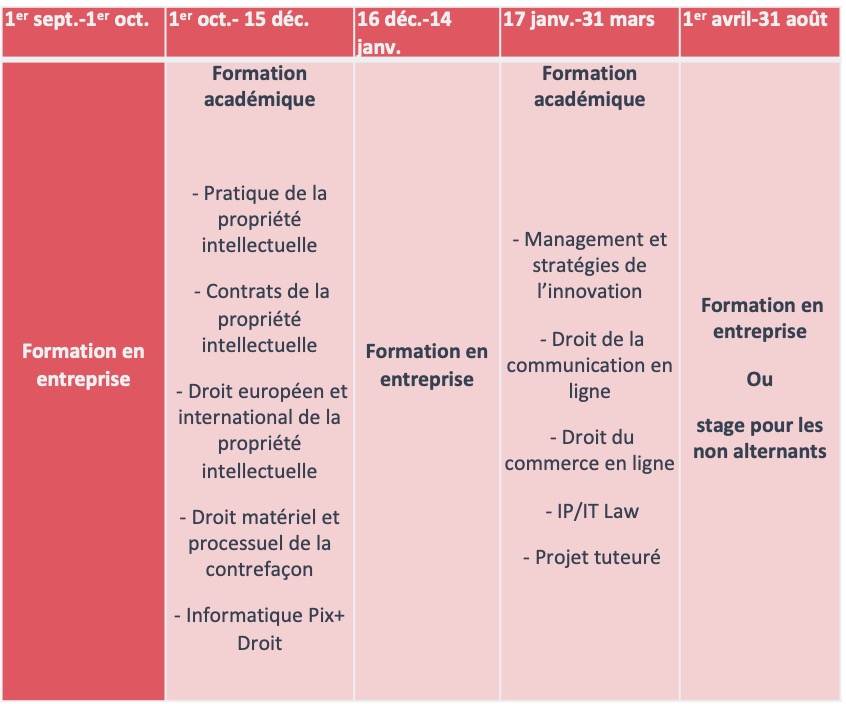
For students on sandwich courses, the tutored project must be submitted by August 31 of each year.
For students not on sandwich courses, the dissertation is due on July 31 of each year (no oral exam).
To this calendar must be added events events in which the Master participates and which give rhythm to its life:
- the national pleading competition (CN2PI)
- APRAM Prize
- the Prix Sacem
- the Media & Internet Legal Prize
Work-study programs and apprenticeships
Work-study calendar
The calendar is the same for all training participants, see Annual Calendar.
Number of training hours
Academic training: 344h
On-the-job training: 980h
Tutored project: 140h
A few rules about alternating work and family life :
- The apprenticeship contract is drawn up in writing and signed by the employer, the apprentice or their legal representative, using cerfa n°10103*07 or FA 13. In addition to general information about the employer and apprentice, the contract specifies that the apprentice master meets the required conditions of professional competence.
- The apprenticeship contract is open to young people aged 16 to 29 at the start of the apprenticeship (article L6222-1, French Labor Code), i.e. the contract must start no later than the day before the apprentice's 30th birthday.
- The duration of the apprenticeship contract is equal to that of the "training cycle preparing for the qualification which is the subject of the contract". In all cases, the minimum duration of training at the training center must be equal to 25% of the duration of the contract, i.e. a minimum of 402 hours for a 12-month contract, for example.
- The start date of the practical training period with the employer may not be more than three months after the contract start date. The start date of the training period at the apprentice training center.
- The apprenticeship supervisor's role is to support the apprentice and help him or her acquire the skills required for the desired qualification, in liaison with the CFA (apprentice training center). This role may be shared between several employees. The apprentice master must be an employee of the company, voluntary, of legal age and of good character.
- Apprenticeships are not open to newcomers, and foreign students can only sign an apprenticeship contract after their first year of residence. Once they have signed an apprenticeship contract, foreign applicants holding a residence permit can apply for a work permit from the "Main-d'oeuvre étrangère" (MOE) office of the DIRECCTE.
- An apprentice with a disability can be administratively recognized in order to benefit fully from his or her rights. To do this, the application for Recognition of the Status of Disabled Worker (RQTH) must be sent to the Maison Départementale des Personnes Handicapées (MDPH) in the place where the apprentice lives.
- Apprenticeship conditions in the public sector are the same as in the private sector, with a few exceptions. Apprenticeship contracts signed with a public authority are private-law fixed-term contracts (CDD).
- In the event of failure to pass the exam, the apprenticeship contract may be extended, either with the same employer in the form of an amendment to the contract, or by signing a new contract with another employer. However, this extension may not exceed one year. In the event of a further failure, no further extension may be obtained.
Please note, however, that the Master 2 year cannot be repeated!
Since January 1, 2019, apprentices have been eligible for €500 in funding for their driving license. This state-funded aid is administered and paid by the CFA.
For more information on work-study contracts, see CFA-EnsupLR.
Courses
The internship period, which runs fromApril 1to June 30 each year, gives students the chance to work in a professional sector dealing with issues of intellectual property and communications law.
The course can be extended until August 31 of the year of registration.
In this way, students can quickly put to the test the knowledge acquired inPart 1 ofthe course.
Study regulations
Study trips
In some years, the Master's program offers the possibility of a study trip to visit European intellectual property institutions:
- 2008: visit to the European Union Intellectual Property Office (EUIPO) in Alicante;
- in 2017-2018: visit to the European Patent Office (EPO) in Munich;
- in 2018-2019: visit to the World Intellectual Property Organization (WIPO) in Geneva.
Trip to Geneva - World Intellectual Property Organization (2018-2019)
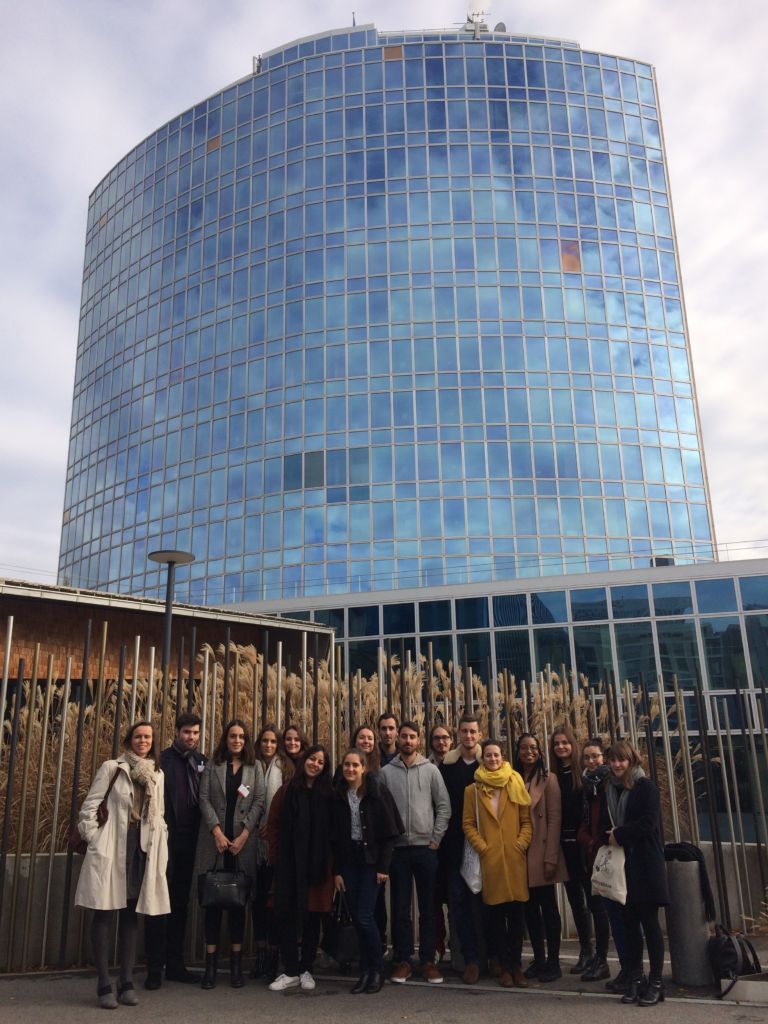
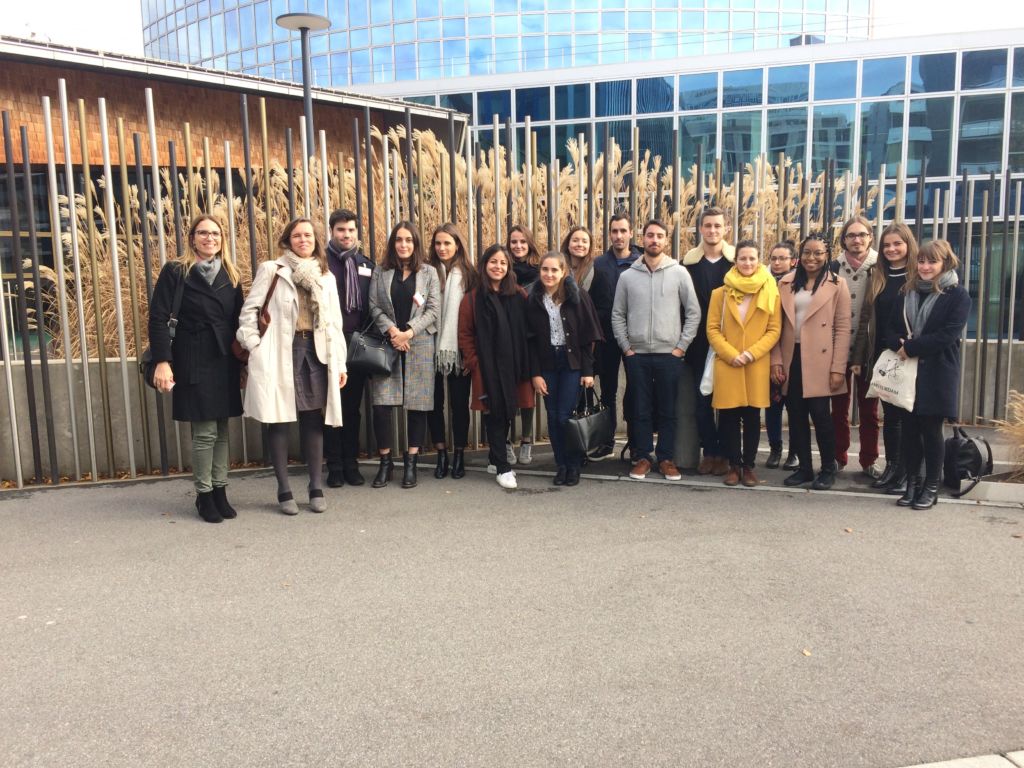
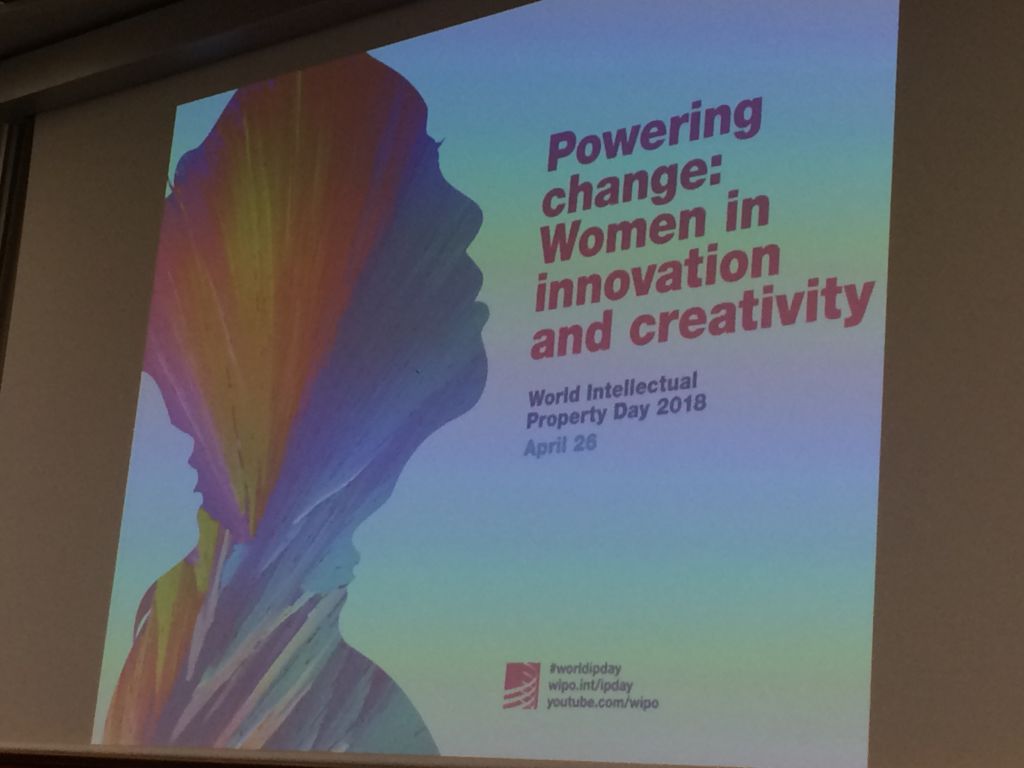
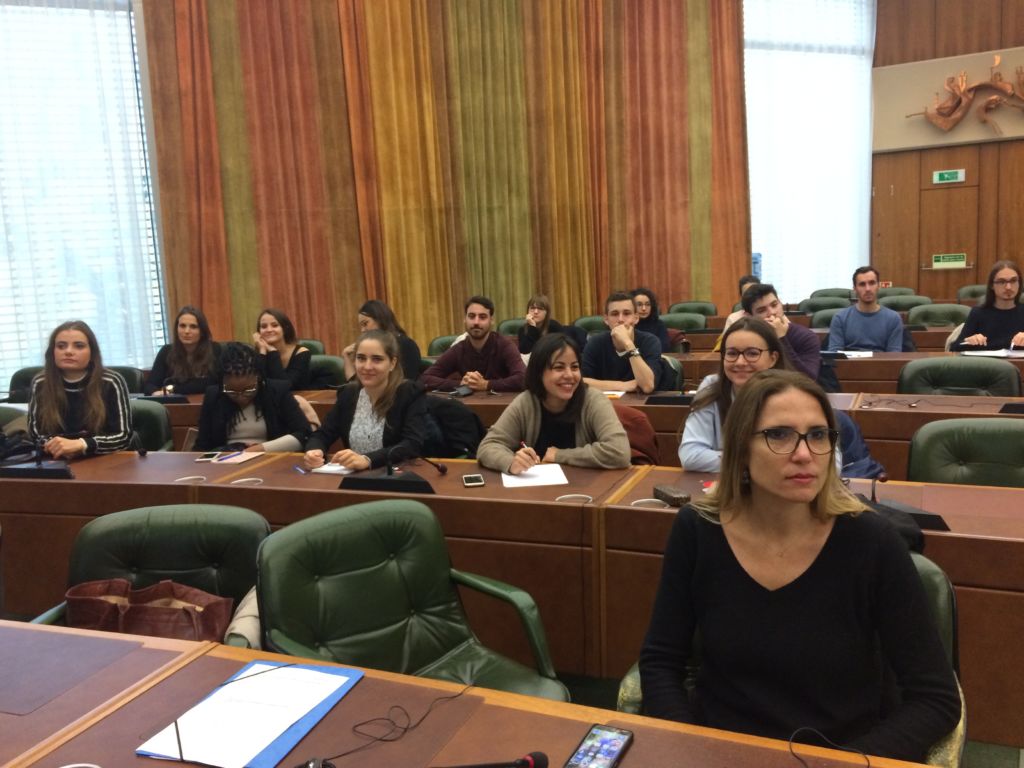
Trip to Munich - European Patent Office (2017-2018)
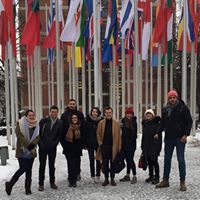
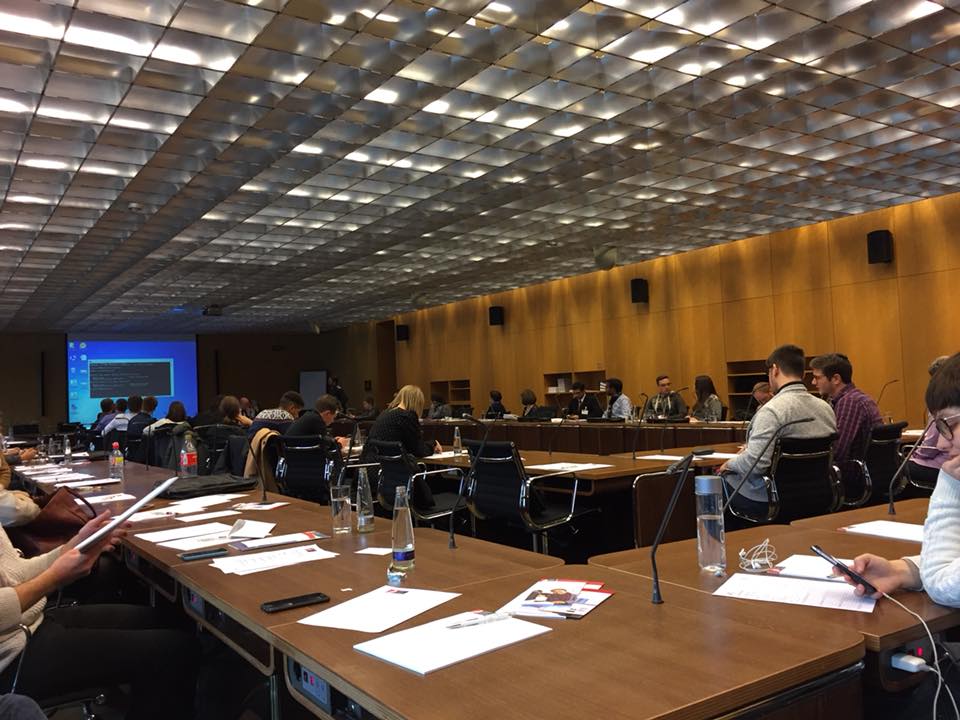
Job opportunities
Over 500 graduates have graduated from the Master's program since its inception (1989).
Today, these graduates are specialized lawyers or patent attorneys.
They are also in-house lawyers in a wide range of companies: music production companies, literary publishers, video game publishers, IT companies, pharmaceutical laboratories, online service companies, etc.
Some students also work as lawyers in specialized organizations such as Sacem or the Agence de sécurité des produits de santé, or in public institutions such as the Musée du Louvre.
More than fifty theses have been defended to date, including 25 between January 2005 and June 2009, and a dozen are currently in preparation.
The program boasts some twenty lecturers, three professors and a CNRS research fellow . Ercim has also awarded several HDRs (see "Members" page ).
In pictures...
Year after year of promotions
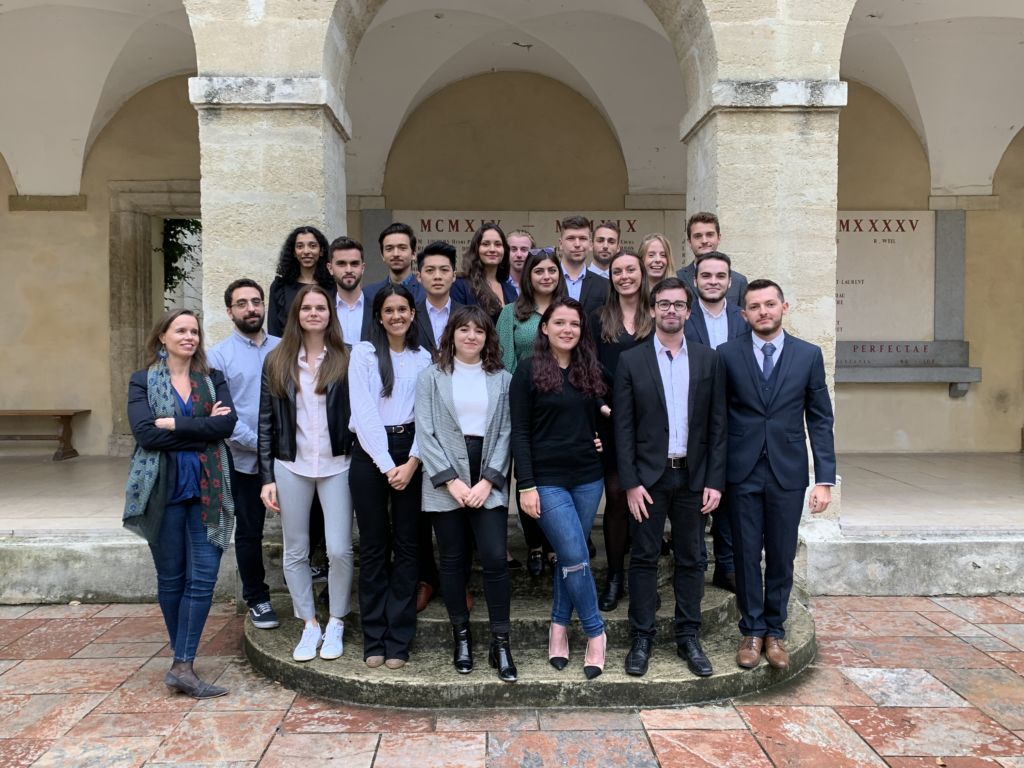
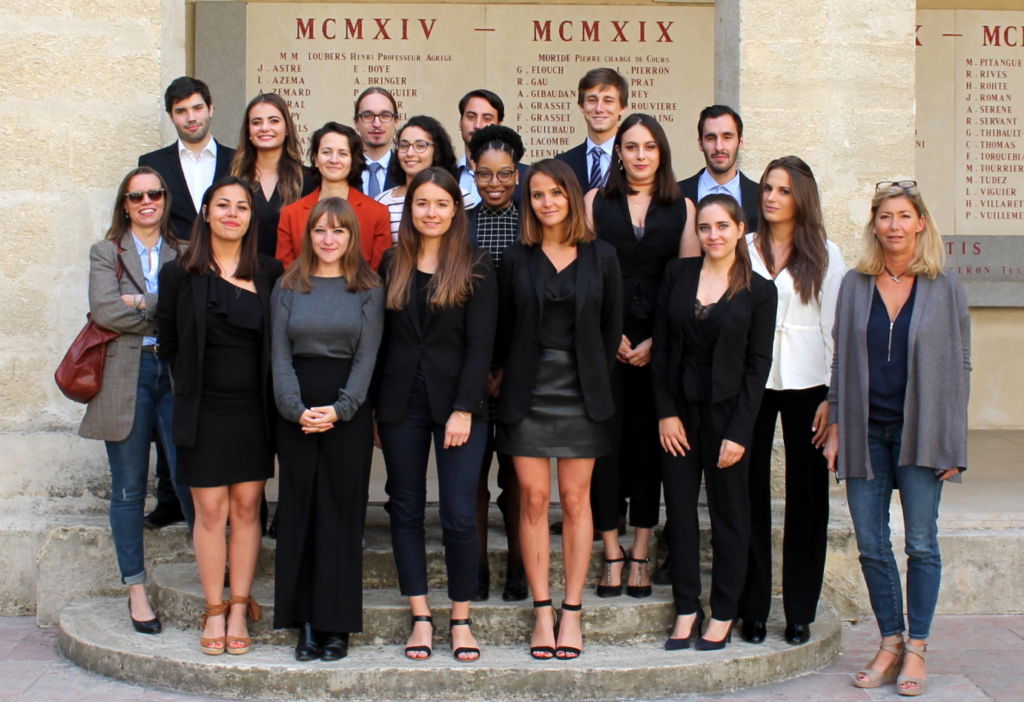
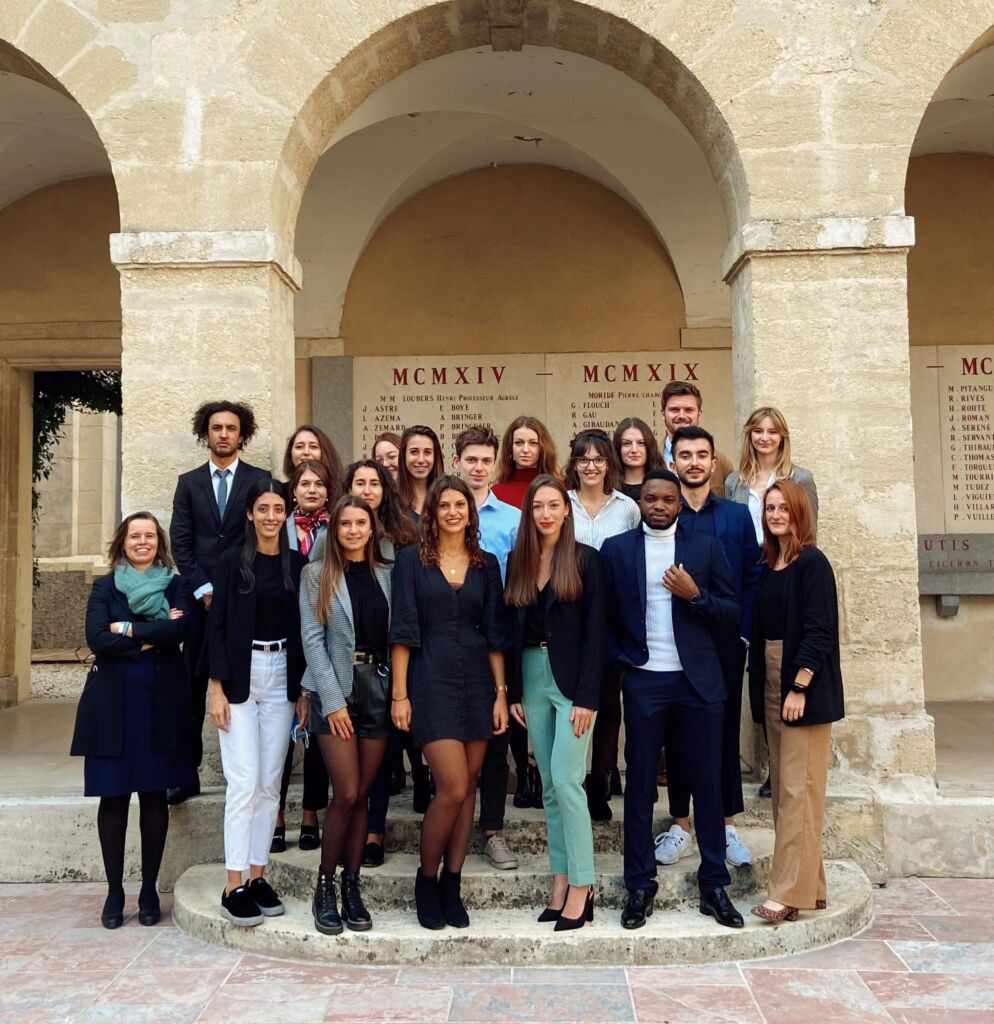
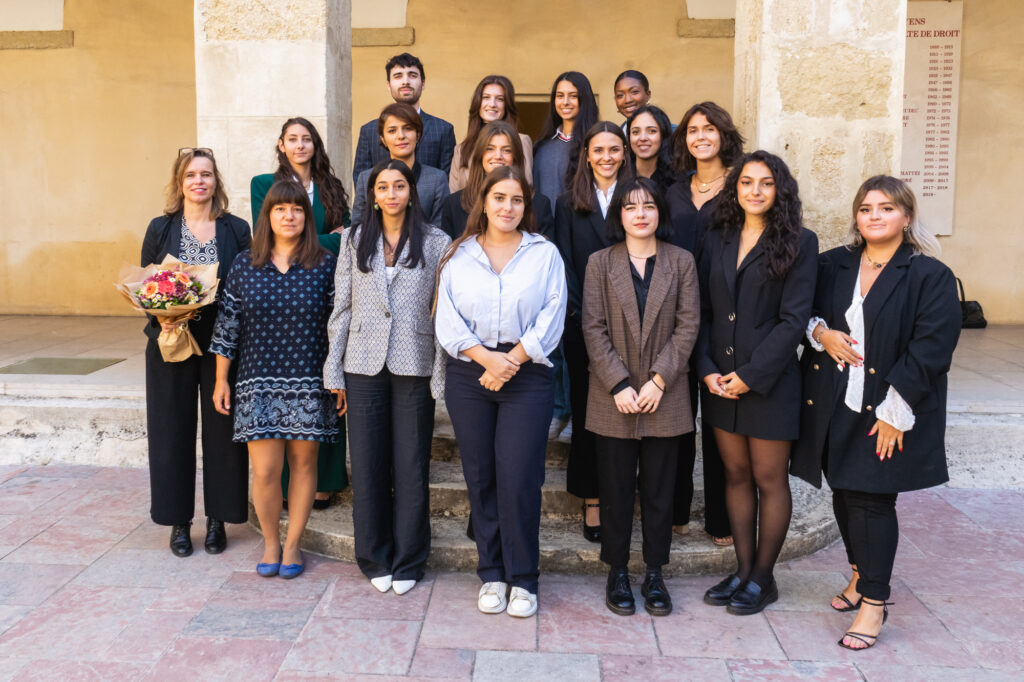
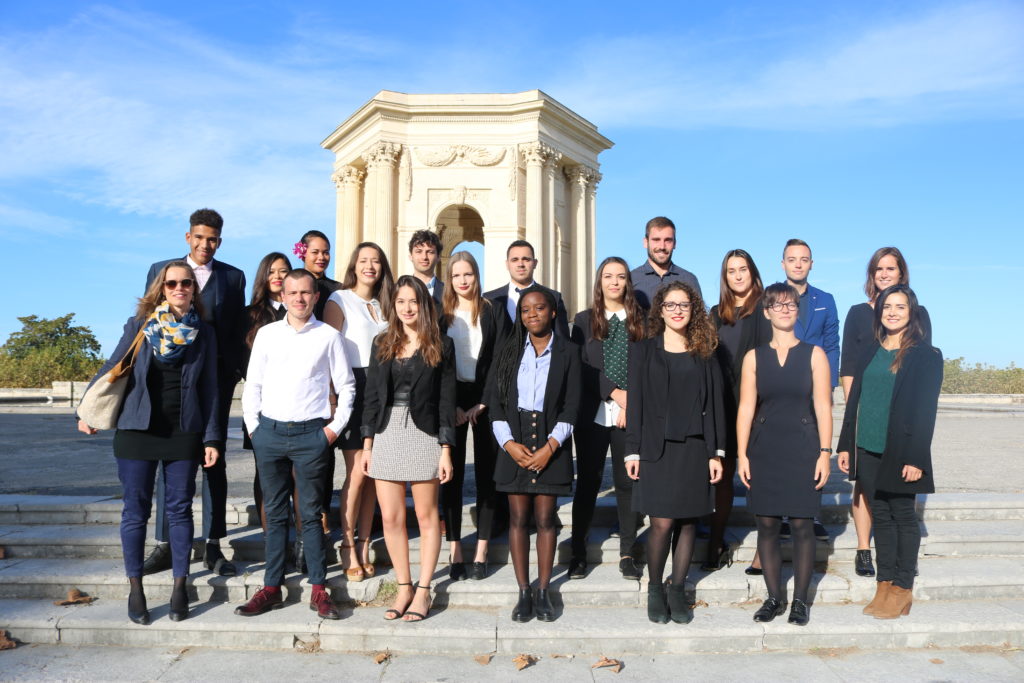
The Master room...
where Corto Maltese rubs shoulders with the Montpellier Danse festival and Emil Nolde... And the Intellectual Property Code, of course!
